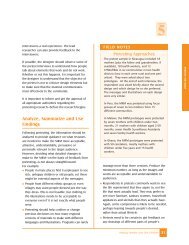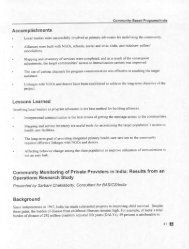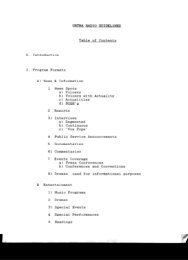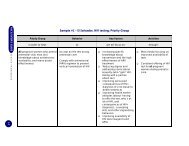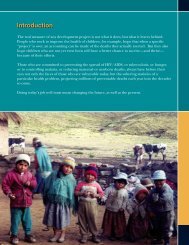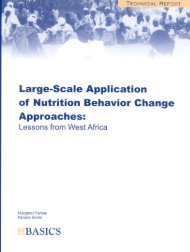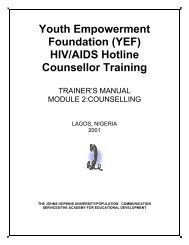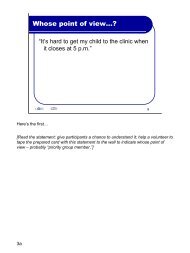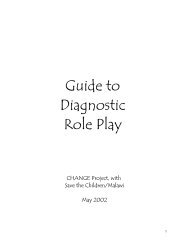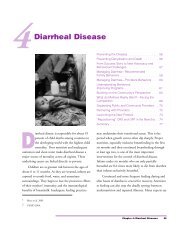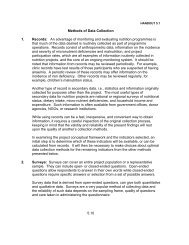MODULE TWO: COUNSELLING - FHI 360 Center for Global Health ...
MODULE TWO: COUNSELLING - FHI 360 Center for Global Health ...
MODULE TWO: COUNSELLING - FHI 360 Center for Global Health ...
Create successful ePaper yourself
Turn your PDF publications into a flip-book with our unique Google optimized e-Paper software.
♦Women are more likely to have gotten HIV through rape or sexual<br />
abuse. As a result, counsellors need to be sensitive when discussing how a<br />
woman was infected, and they need to be prepared to give referrals to rape<br />
counselling services.<br />
♦Women are more likely to be single parents. Raising children alone can<br />
cause a lot of stress and strain, both physically and mentally. This can be<br />
especially stressful when HIV-positive mothers become too sick to work, and<br />
they must worry about how to support themselves and their children.<br />
♦It is harder <strong>for</strong> women to negotiate safer sex. HIV-positive women need<br />
to practice safer sex in order to avoid infecting others and to keep from getting<br />
reinfected themselves. Because women are less empowered than men,<br />
however, it can be harder <strong>for</strong> them to ask their partners to use condoms. This is<br />
especially true if they do not feel safe revealing their HIV status to their partners.<br />
Counsellors can help the woman to explore different strategies <strong>for</strong> negotiating<br />
safer sex.<br />
♦It may be harder <strong>for</strong> women to access treatment than men. Women<br />
may have a harder time accessing treatment due to their lower economic status.<br />
They are less likely to have access to health insurance, because they are less<br />
likely to work in the <strong>for</strong>mal sector. In addition, it can be harder <strong>for</strong> them to pay<br />
<strong>for</strong> medicine and services because they traditionally earn less money.<br />
Counsellors need to be sensitive to this issue when referring women <strong>for</strong><br />
treatment.<br />
♦Women are more likely to have a double burden of caring <strong>for</strong> sick<br />
family members in addition to themselves. Because women are<br />
traditionally seen as the caregivers, they often care <strong>for</strong> several other family<br />
members. This can be an overwhelming burden when the woman is sick herself.<br />
Counsellors need to help them explore options <strong>for</strong> getting assistance with caring<br />
<strong>for</strong> others.<br />
Guidelines <strong>for</strong> Counselling Women<br />
1. Encourage women to express their feelings. If they feel blame, guilt or<br />
shame, tell them that this is normal, but that they did not ask <strong>for</strong> HIV and<br />
they have no reason to feel guilty. Refer them to AIDS organizations that<br />
offer support groups and other services <strong>for</strong> women.<br />
2. If a woman is pregnant, explain how HIV is transmitted from mother-tochild<br />
and what the chances of transmission are. Women should never be<br />
pressured to have abortions. Women who do want to keep their babies<br />
should be encouraged to go <strong>for</strong> prenatal care.<br />
Session 8-Pg.9



